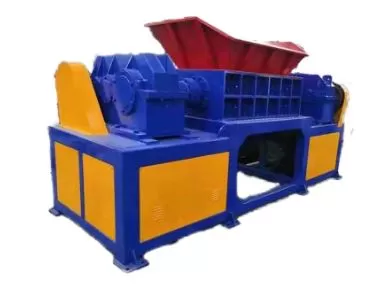Have you ever noticed the increasing piles of scrap metal in your area and thought about the potential goldmine they represent? The scrap metal business can be lucrative, but only if you know how to navigate its complexities. Let’s dive into the essential steps and insights you need to turn metal scraps into a profitable venture.

Starting a scrap metal business requires more than just a keen eye for metals. You need a strategic approach, understanding of the market, and a reliable network. With these elements in place, you can build a successful scrap metal business from the ground up.
Now, let’s maintain the momentum. Curious about the ins and outs of this industry? Read on.
What are the Initial Steps?
First things first: research. Understand the market demand for various metals. Copper, aluminum, and steel are common, but each has its value and buyers. Analyze your local market, identify potential competitors, and pinpoint where you can fit in.
Next, create a business plan. Outline your goals, target market, operational plan, and financial projections. This plan will guide you and be crucial when seeking funding from investors or banks.
What Equipment Do You Need?
To start, you’ll need basic tools like a magnet, scale, and safety gear. As you grow, investing in more advanced machinery like shredders and crushers (hey, Amige specializes in these!) can enhance efficiency and output.
Transportation is another key factor. A reliable truck to collect and deliver scrap metal is essential. Depending on the scale of your business, you might need multiple vehicles.
How to Source Scrap Metal?
Networking is your best friend here. Establish connections with local businesses, construction sites, and auto repair shops. Offer them a service to collect their scrap metal, often for free, to build your inventory.
Public awareness can also be a game-changer. Advertise your services through local media, social media platforms, and community events. Educating the public on the benefits of recycling can boost your collection efforts.
What Legalities Should You Consider?
Compliance with local regulations is non-negotiable. Obtain the necessary licenses and permits to operate legally. This includes environmental permits and business licenses.
Additionally, stay informed about regulations regarding the handling and disposal of hazardous materials. Non-compliance can result in hefty fines and damage to your reputation.
How to Manage Operations?
Efficient operations are the backbone of any successful business. Implement a system for sorting and processing metals. This ensures you maximize the value of your inventory by properly categorizing each type of metal.
Inventory management software can streamline your processes. It helps keep track of incoming and outgoing metals, pricing, and customer details. This data is invaluable for making informed business decisions.
How to Market Your Business?
Marketing is crucial to attract both suppliers and buyers. A professional website showcasing your services and contact information is a must. SEO optimization can drive organic traffic to your site.
Social media platforms are excellent for reaching a broader audience. Regular updates, customer testimonials, and educational posts about recycling can enhance your brand’s visibility and credibility.
What Challenges Might You Face?
Every business faces challenges, and the scrap metal industry is no different. Price fluctuations in the metal market can impact your profits. Staying updated on market trends and having a flexible pricing strategy can mitigate this risk.
Competition can be fierce. Differentiate your business by offering exceptional customer service, timely pickups, and competitive prices. Building strong relationships with your suppliers and buyers can provide a steady flow of business.
How to Ensure Sustainability?
Sustainability is not just a buzzword; it’s a necessity. Implement eco-friendly practices in your operations. This can include using energy-efficient machinery, reducing waste, and promoting recycling.
Being transparent about your sustainable practices can also attract environmentally conscious customers. It’s a win-win: you do good for the planet, and your business benefits.
Conclusion
Starting a scrap metal business can be highly rewarding with the right approach. From research and planning to marketing and operations, every step is crucial. Stay informed, be prepared to adapt, and always aim for sustainability. With these strategies, you can turn what others see as waste into a profitable business.
That’s it! Get out there and start turning scrap into success.
